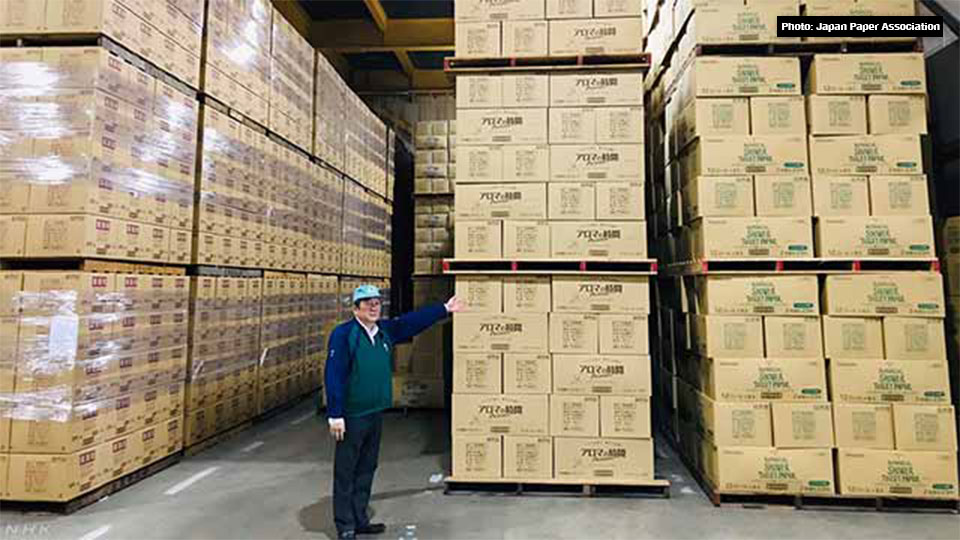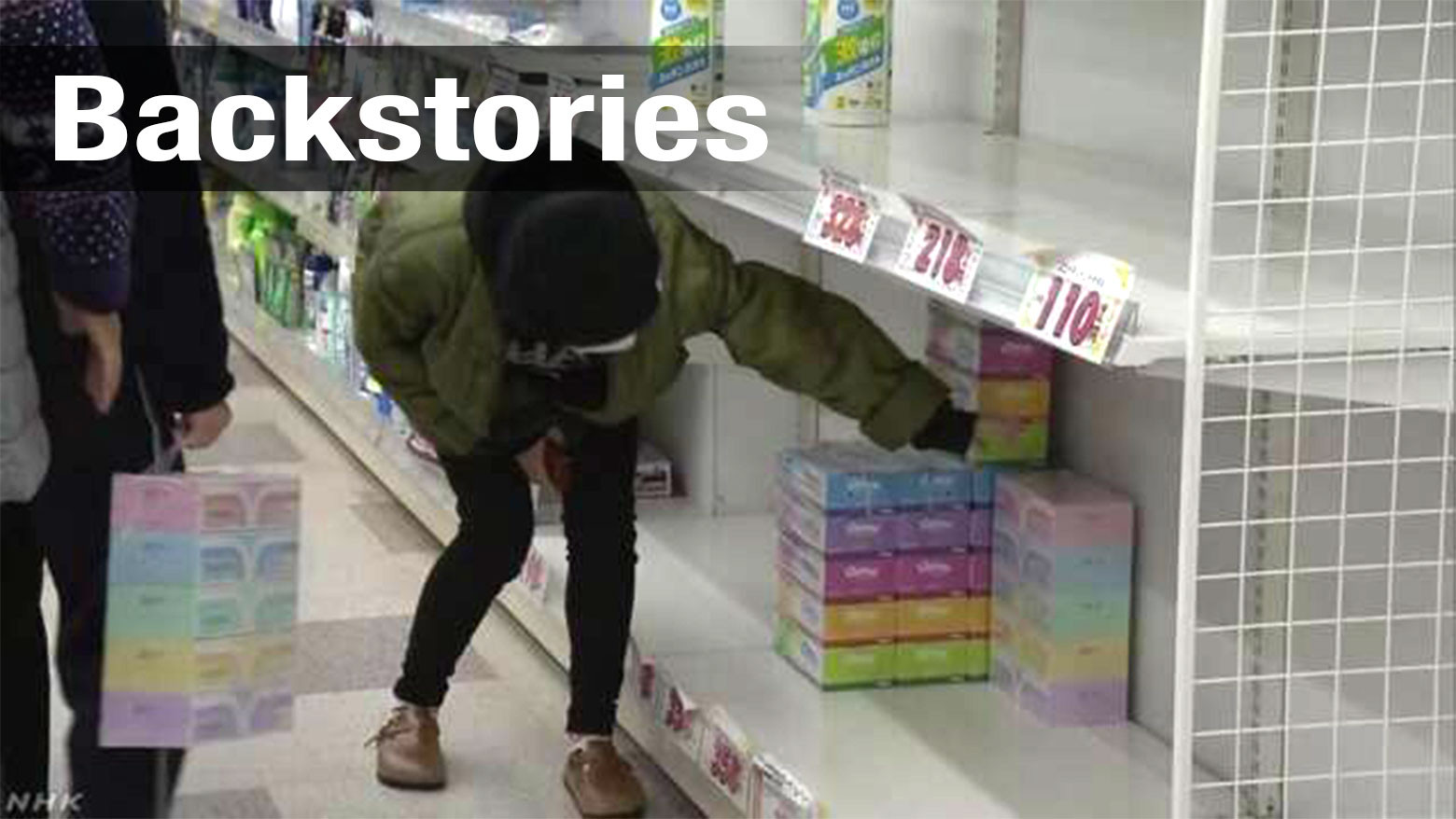This weekend, I went on the hunt for a 12-pack of toilet paper, the kind that, until last week, had been readily available at any supermarket or drugstore in Tokyo. But everywhere I went, it was sold out. Staff at stores I visited said they stocked the shelves every morning, but everything was cleaned out within an hour of opening, despite a rule limiting shoppers to one package each.
A quick Twitter search shows I'm not the only one with toilet paper at the front of her mind. Over the past week, there have been over 200,000 posts mentioning the words "toilet" and "paper." Other trending terms including "out of stock" and "shortage."
News of toilet paper shortages in Hong Kong and Singapore seem to be fueling this anxiety. And some people are speculating that Japan will soon be unable to secure the raw material needed for paper production, if China's economy remains inactive for much longer.
But Japanese producers have been quick to say these fears are baseless. On Monday, the Association of Paper Manufacturers issued a statement saying that 98 percent of the country's toilet paper is made domestically and that there is currently no shortage in supplies.
The government has backed this up, adding that consumers should shop in a responsible manner.

But the statements have done little to ease concerns. Other rumors that increased face mask production will be what actually causes a paper shortage have continued to swirl.
"These announcements are too late," reads one Twitter post. "There's nothing on the shelves, so I feel like I have to buy some whenever I can."
Keiko Yoshikawa, professor of social psychology at Keio University, says this type of behavior is common in times of crisis.
"People see everyone else buying toilet paper and they want to avoid being left empty-handed," she says. "It's a self-fulfilling prophecy, in a way. This groundless information is leading to buying sprees, which is an actual problem."

